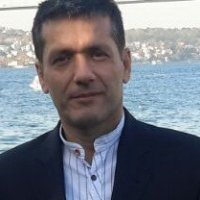Change and Continuity in China's Development Oriented Foreign Policy in Xi Jinping Era
From the late 1980s, the development-oriented paradigm has become a dominant approach in China's foreign policy. Hereby, Beijing tries to absorb the international resources in its national economy. After four decades, the Chinese economy has made remarkable progress by applying peaceful interactive foreign policy. Beijing now has substantial oversea economic and political interests. Maintaining and expanding these interests are top priority in China's foreign policy. But pure emphasis on economy in foreign policy will not materialize the mentioned priority. China's fifth-generation elites are aware about this shortcoming. So in Xi Jinping's era, China's development-oriented foreign policy has faced with modifications. Therefore, this question comes up that how the range and continuity of China’s development-oriented foreign policy has been in the Xi Jinping period? Even though Xi Jinping has commitment to China's development oriented foreign policy; but it has attached with more Political-military assertiveness. This hypothesis will be tested in the framework of Adrian Leftwich developmental state theory as well as Robert Kagan’s theory on history. This research has been undergone by descriptive-analytic method.
-
The political economy of internationalization of emerging currencies; An analysis of the trends and consequences of the internationalization of the yuan
Sahar Pirankhoo, *, Iman Bastanifar
Journal of Political and International Approaches, -
Analyzing the Compatibility of the Assassination of Qasem Soleimani with the Self-Defense Theory (both Restrictive and Anticipatory)
*
A Quarerly Journal of Political Studies of Islamic World, Summer 2024 -
Evaluating the Obstacles and Limitations of the United Nations Action in the Syrian Crisis within the framework of he Doctrine of the Responsibility to Protect
Mostafa Jahanbakhsh *,
Journal of Crisis Studies of the Islamic World, -
The Position of Indo-Pacific Region in Britain’s New Strategy (2015-2021)
Mehdi Amiri *, Mehrshad Ghafarizade,
International Relations Research Quarterly,



